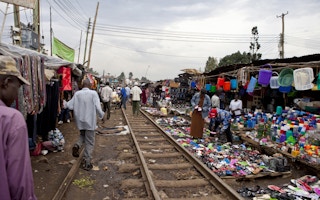The world risks having to spend about $250 billion just to monitor UN development targets for 2030, diverting cash from goals such as ending poverty or protecting the environment, according to a study published on Wednesday.
The report said governments should sharply cut a current draft list of targets for 2030 from a current 169 to avoid over-spending on compiling statistics. A World Bank official contested the study, calling the cost estimates too high.
World leaders are due to set new sustainable development objectives, such as improving health and ensuring access to energy, when current UN Millennium goals for reducing hunger and poverty expire in 2015.
The report by Morten Jerven, a development expert at Simon Fraser University in Canada, estimated that each new target would cost $1.5 billion if it were tracked via censuses and surveys of households, living standards and health.
“
United Nations should limit targets or risk diverting money from spending on health or fresh water supplies
Bjorn Lomborg, director of the Copenhagen Consensus Center
That would mean a total $254 billion for all 169, or about twice the amount of annual aid donations by developed nations worldwide, he wrote. Many developing nations, especially in sub-Saharan Africa, need aid to help improve data collection.
“If you are serious about monitoring development … you need to narrow the list” of targets, Jerven told Reuters of his study for the Copenhagen Consensus Center, which seeks to put a price on challenges from fighting malaria to climate change.
The study said that data collection costs are high, even with the help of the Internet and modern technology. The United States spent $13 billion on its latest census in 2010, according to the US Government Accountability Office.
Nigerian boom
Reliable data is vital to gauge development needs, he said. In April, for instance, Nigeria abruptly overtook South Africa as Africa’s largest economy after a revision of statistics almost doubled its gross domestic product.
Gabriel Demombynes, a senior World Bank official, said Jerven’s estimate of $1.5 billion per target over-estimated future needs, noting that the United Nations in 2013 urged a “data revolution” to harness new technologies.
And he said national statistics agencies of many middle income nations were more advanced than Jerven estimated.
“The cost to international aid donors of filling remaining survey gaps is manageable - on the order of $300 million per year,” he and a colleague wrote in a commentary for the Copenhagen Consensus Center.
Suggested UN goals for 2030 include eradicating poverty, with targets to end the worst poverty of below $1.25 a day, and to reduce by at least half the proportion of people living in any form of poverty.
Bjorn Lomborg, director of the Copenhagen Consensus Center, said the United Nations should limit targets or risk diverting money from spending on health or fresh water supplies.
“This is a wake-up call to avoid costly demands on the global system,” he told Reuters of Jerven’s estimates.

















